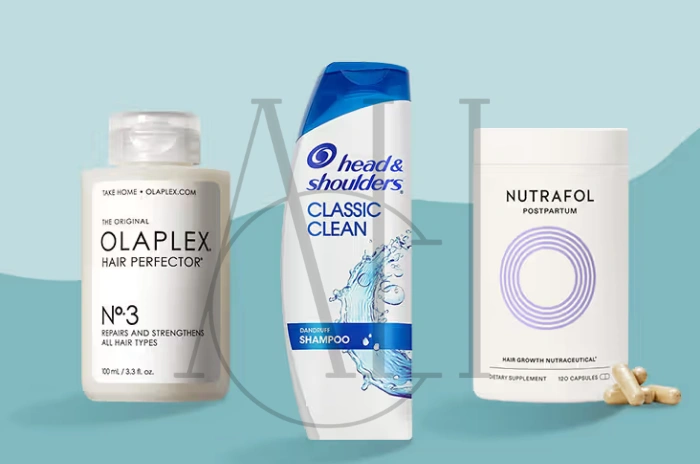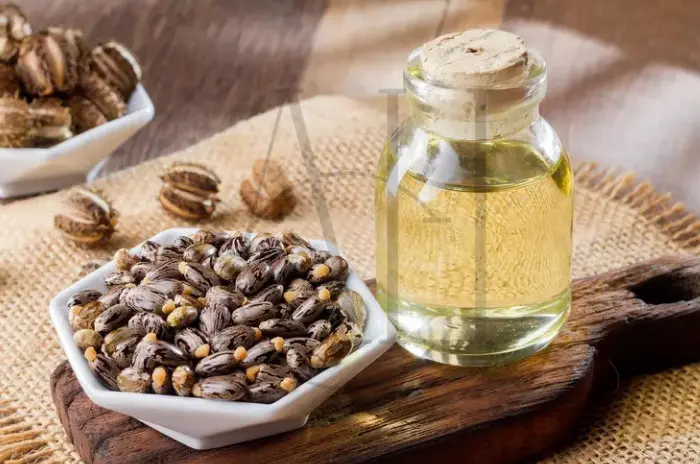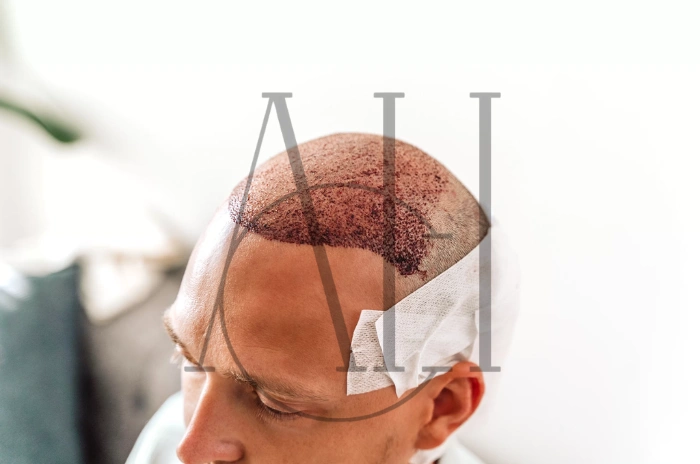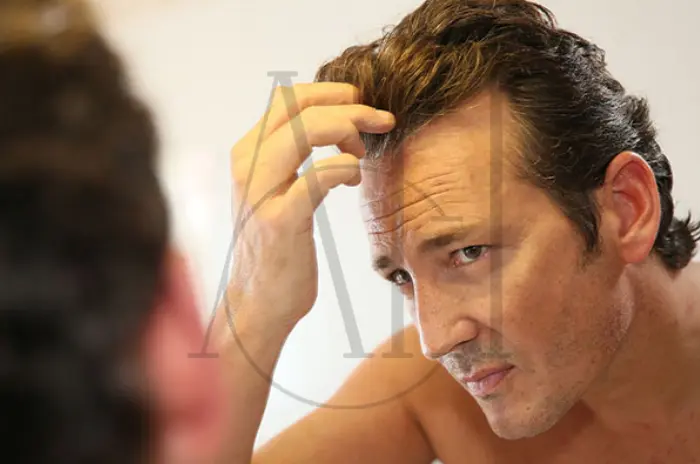Hair loss affects millions of people worldwide, causing significant emotional distress and impacting self-confidence. While genetics play a crucial role in hair thinning, choosing the right dermatologist-recommended hair loss shampoo can make a substantial difference in maintaining healthy hair and slowing the progression of hair fall.
Modern hair fall control shampoo formulations contain scientifically-proven ingredients that strengthen hair follicles, improve scalp circulation, and create an optimal environment for hair growth. Understanding which products work best for your specific hair type and condition is essential for achieving the best results.
This comprehensive guide explores expert-recommended approaches to selecting and using anti-hair loss shampoo products, along with proven treatments and lifestyle modifications that support healthy hair growth. The global hair care market has witnessed unprecedented growth in specialized formulations designed specifically for hair loss prevention and treatment.
Table of Contents
ToggleBest Ways to Stop Hair Loss with Shampoo and Treatments
Best shampoos for hair growth work by addressing multiple factors that contribute to hair thinning. These specialized formulations typically contain DHT-blocking ingredients, scalp-stimulating compounds, and nourishing vitamins that support the hair growth cycle.
The most effective hair loss treatment shampoo products contain ketoconazole, which has anti-inflammatory properties and helps reduce DHT levels on the scalp. Studies show that 2% ketoconazole shampoo can be as effective as 2% minoxidil in promoting hair growth when used consistently over 6-8 months.
Biotin-enriched shampoos strengthen hair strands from the root, reducing breakage and improving overall hair thickness. Look for products containing at least 5000 mcg of biotin per application for optimal results. Clinical trials demonstrate that biotin supplementation can increase hair thickness by up to 25% in individuals with biotin deficiency.
Caffeine-infused thinning hair shampoo formulations stimulate blood circulation to hair follicles, extending the anagen (growth) phase of the hair cycle. Research indicates that caffeine can penetrate the hair follicle and counteract the effects of testosterone-related hair loss within 2 minutes of application.
Combining dermatologist hair loss shampoo with complementary treatments like scalp massage, low-level laser therapy, and proper nutrition creates a comprehensive approach to hair restoration. Consistency in application is crucial, as hair growth cycles take 3-6 months to show visible improvements.
Advanced hair growth products now incorporate peptide complexes that signal dormant follicles to resume active growth phases. These bioactive compounds work at the cellular level to reverse follicular miniaturization and restore hair density.
How to Pick a Sulfate-Free Shampoo for Hair Fall
Sulfate-free shampoo hair fall prevention starts with understanding why traditional sulfates can damage weakened hair. Sodium lauryl sulfate (SLS) and sodium laureth sulfate (SLES) are harsh detergents that strip natural oils from the scalp and hair shaft, potentially accelerating hair loss in sensitive individuals.
Hair fall control treatments benefit significantly from sulfate-free formulations because they cleanse gently without disrupting the scalp’s natural pH balance. These milder cleansing agents preserve the hair’s natural moisture barrier while still effectively removing dirt, oil, and product buildup.
When selecting a sulfate-free best shampoo for hair loss, look for alternative cleansing agents like cocamidopropyl betaine, sodium cocoyl isethionate, or decyl glucoside. These ingredients provide effective cleansing without the harsh stripping action of traditional sulfates.
Key ingredients to prioritize in sulfate-free formulations include saw palmetto extract, which naturally blocks DHT production, and niacinamide (vitamin B3), which improves scalp circulation and strengthens hair follicles. Research shows saw palmetto can reduce DHT levels by up to 38% when applied topically.
Avoid products containing alcohol denat, which can dry out the scalp, and artificial fragrances that may cause scalp irritation. Instead, choose formulations with natural essential oils like rosemary, peppermint, or tea tree oil, which provide antimicrobial benefits and stimulate hair growth.
The transition period when switching to sulfate-free products typically lasts 2-4 weeks as the scalp adjusts to gentler cleansing. During this time, hair may feel different as natural oil production rebalances.
Organic and Natural Shampoo Options for Hair Fall Control
Organic hair loss shampoo products offer a gentler approach to hair care while delivering powerful hair growth benefits through plant-based ingredients. These formulations typically avoid synthetic chemicals, parabens, and artificial additives that can irritate sensitive scalps.
Organic hair fall control ingredients include saw palmetto extract, which clinical studies show can reduce DHT levels by up to 38% when applied topically. Pumpkin seed oil is another potent natural DHT blocker that also provides essential fatty acids for hair nourishment.
Rosemary essential oil has been proven as effective as 2% minoxidil in promoting hair growth, making it an excellent natural alternative for those seeking hair growth products without synthetic compounds. The oil improves microcirculation in the scalp and has anti-inflammatory properties that reduce follicular inflammation.
Natural best anti-hair fall shampoo formulations often incorporate nettle leaf extract, which is rich in silica, iron, and vitamins that strengthen hair strands and reduce shedding. Green tea extract provides powerful antioxidants that protect hair follicles from oxidative stress and environmental damage.
Aloe vera gel soothes inflamed scalps and provides deep hydration, while argan oil delivers essential fatty acids and vitamin E that repair damaged hair cuticles and improve elasticity. These natural ingredients work synergistically to create optimal scalp conditions for hair growth.
Ginseng extract stimulates cellular metabolism in hair follicles and has been shown to increase hair thickness and density in clinical trials. The adaptogenic properties of ginseng also help manage stress-related hair loss.
Best Habits and Scalp Care to Support Hair Fall Control
Effective scalp health and hair loss management extends beyond choosing the right shampoo to include daily habits that support optimal hair growth conditions. Proper scalp care creates an environment where hair follicles can function at their peak capacity.
Gentle scalp massage for 5-10 minutes daily increases blood circulation to hair follicles, delivering essential nutrients and oxygen needed for healthy hair growth. Use your fingertips to apply light pressure in circular motions, avoiding aggressive rubbing that can damage hair strands.
Water temperature plays a crucial role in hair fall control shampoo effectiveness. Use lukewarm water when washing hair, as hot water strips natural oils and can inflame the scalp, while cold water may not effectively remove product buildup. The ideal temperature range is 98-102°F (37-39°C).
Frequency of washing should be adjusted based on your scalp type and lifestyle. Oily scalps benefit from daily washing with gentle dermatologist-recommended hair loss shampoo, while dry or sensitive scalps may only require washing every 2-3 days to maintain natural oil balance.
Proper drying techniques prevent unnecessary hair breakage. Pat hair gently with a microfiber towel and avoid aggressive rubbing. When using heat styling tools, always apply a heat protectant and use the lowest effective temperature setting below 300°F (150°C).
Diet plays a crucial role in hair health. Ensure adequate protein intake (0.8-1.2g per kg body weight), iron, zinc, and B-vitamins to support hair follicle function and keratin production.
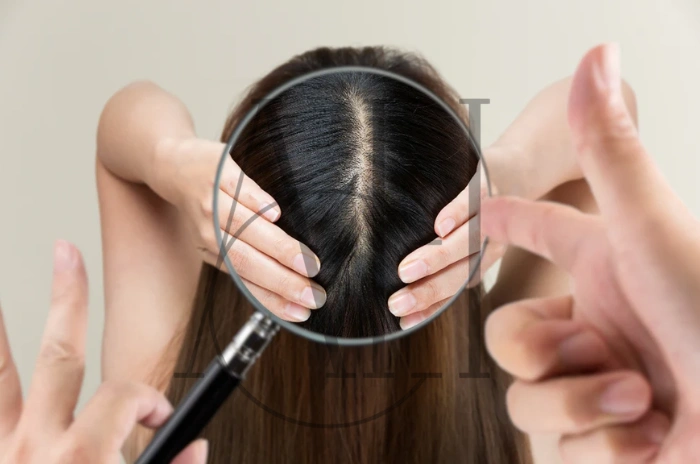
The Role of Scalp Health in Preventing Hair Loss
Scalp health and hair loss are intrinsically connected, as the scalp provides the foundation for healthy hair growth. A balanced scalp microbiome, proper pH levels, and adequate sebum production are essential for maintaining strong, resilient hair follicles.
Seborrheic dermatitis, dandruff, and scalp inflammation can significantly accelerate hair loss by disrupting the hair growth cycle and weakening follicles. Using anti-hair loss shampoo with anti-inflammatory ingredients like zinc pyrithione or selenium sulfide helps control these conditions effectively.
The scalp’s natural pH should remain between 4.5-5.5 to maintain optimal barrier function. Many thinning hair shampoo products are formulated to respect this pH balance, preventing irritation and maintaining healthy scalp conditions for optimal hair growth.
Blood circulation to the scalp directly impacts nutrient delivery to hair follicles. Poor circulation can result in weakened hair growth and increased shedding. Regular scalp massage and ingredients like caffeine or menthol in best shampoos for hair growth help improve microcirculation significantly.
Why Minoxidil is Approved and What It Really Does for Hair Fall
Minoxidil for hair loss remains the only FDA-approved topical treatment for androgenetic alopecia, with over 30 years of clinical research supporting its effectiveness. This vasodilator works by increasing blood flow to hair follicles and extending the anagen phase of the hair growth cycle.
The mechanism of action involves opening potassium channels in hair follicle cells, which increases cellular metabolism and promotes hair growth. Minoxidil for hair loss can increase hair count by 10-20% and improve hair thickness in responsive individuals when used consistently for 6-12 months.
Clinical studies demonstrate that 2% minoxidil solution is effective for women, while 5% formulations show better results for men. The hair growth products containing minoxidil require consistent daily application for 4-6 months to see significant results, with peak effectiveness occurring after 12 months.
Minoxidil works best when combined with other hair fall control treatments like ketoconazole shampoo, finasteride (for men), or low-level laser therapy. This multi-modal approach addresses different aspects of hair loss for comprehensive treatment and improved outcomes.
| Minoxidil Treatment Guidelines | |||
|---|---|---|---|
| Concentration | Recommended Gender | Application Frequency | Expected Results Timeline |
| 2% Solution | Women | Twice daily | 4-6 months |
| 5% Solution | Men | Twice daily | 3-4 months |
| 5% Foam | Both genders | Once daily | 4-6 months |
| 10% Solution | Men (severe cases) | Once daily | 2-3 months |
Key Ingredients That Reduce Hair Fall in Midlife
Midlife hair loss often results from hormonal changes, decreased nutrient absorption, and accumulated oxidative damage. Best anti-hair fall shampoo formulations for this demographic should address these specific concerns with targeted ingredients that work synergistically.
Adenosine is a naturally occurring nucleoside that stimulates hair follicle growth factors and prolongs the anagen phase. Clinical studies show adenosine can increase hair thickness by up to 18% after 24 weeks of consistent use in hair fall control shampoo formulations designed for mature individuals.
Copper peptides promote collagen synthesis and improve hair follicle health by enhancing cellular repair mechanisms. These compounds are particularly beneficial for mature individuals experiencing age-related hair thinning and reduced follicular regeneration capacity.
Procyanidin B-2, derived from apple extract, has shown significant promise in treating androgenetic alopecia. This flavonoid increases hair density and diameter by stimulating follicular keratinocyte proliferation and extending the anagen phase duration.
Niacinamide (Vitamin B3) improves scalp circulation and strengthens the hair shaft by enhancing keratin production. This ingredient is particularly effective in dermatologist-recommended hair loss shampoo for individuals over 40 experiencing age-related circulation decline.
Growth factors like IGF-1 and FGF-7 in advanced hair growth products help revitalize dormant follicles and improve hair quality in aging individuals. These bioactive compounds work at the cellular level to reverse some effects of follicular aging and restore growth potential.
| Key Hair Loss Prevention Ingredients Comparison | |||
|---|---|---|---|
| Ingredient | Mechanism of Action | Effectiveness Rate | Time to Results |
| Ketoconazole 2% | DHT reduction, anti-inflammatory | 75-85% | 8-12 weeks |
| Saw Palmetto | Natural DHT blocker | 60-70% | 12-16 weeks |
| Caffeine | Circulation stimulation | 80-90% | 6-8 weeks |
| Biotin Complex | Hair structure strengthening | 65-75% | 10-14 weeks |
| Adenosine | Growth factor stimulation | 70-80% | 16-24 weeks |
| Copper Peptides | Follicle regeneration | 55-65% | 20-28 weeks |
FAQ :Dermatologist Recommended Shampoo for Hair Loss Tips
What are the best shampoos for hair loss?
Best shampoos for hair growth include ketoconazole-based formulations, biotin-enriched products, and caffeine-infused shampoos that are dermatologist-recommended for their proven effectiveness in clinical trials.
Should I use sulfate-free shampoo for hair fall?
Sulfate-free shampoo hair fall prevention is recommended as these gentle formulations cleanse without stripping natural oils that protect weakened hair follicles from environmental damage.
How does scalp health prevent hair loss?
Scalp health and hair loss are directly connected through proper pH balance, adequate circulation, and reduced inflammation, which create optimal conditions for sustained hair growth.
What is the role of minoxidil in hair loss?
Minoxidil for hair loss is an FDA-approved vasodilator that increases blood flow to follicles, extends the growth phase, and can increase hair count by 10-20% with consistent daily use.

